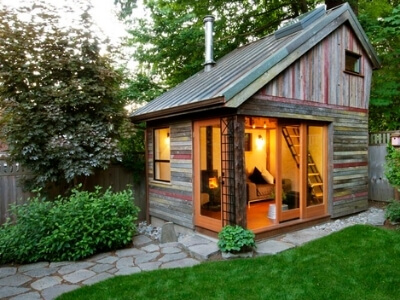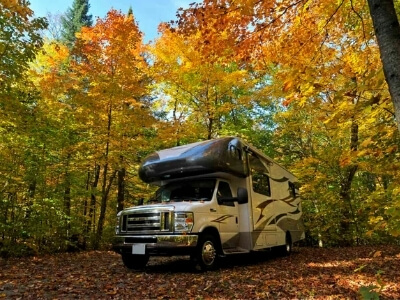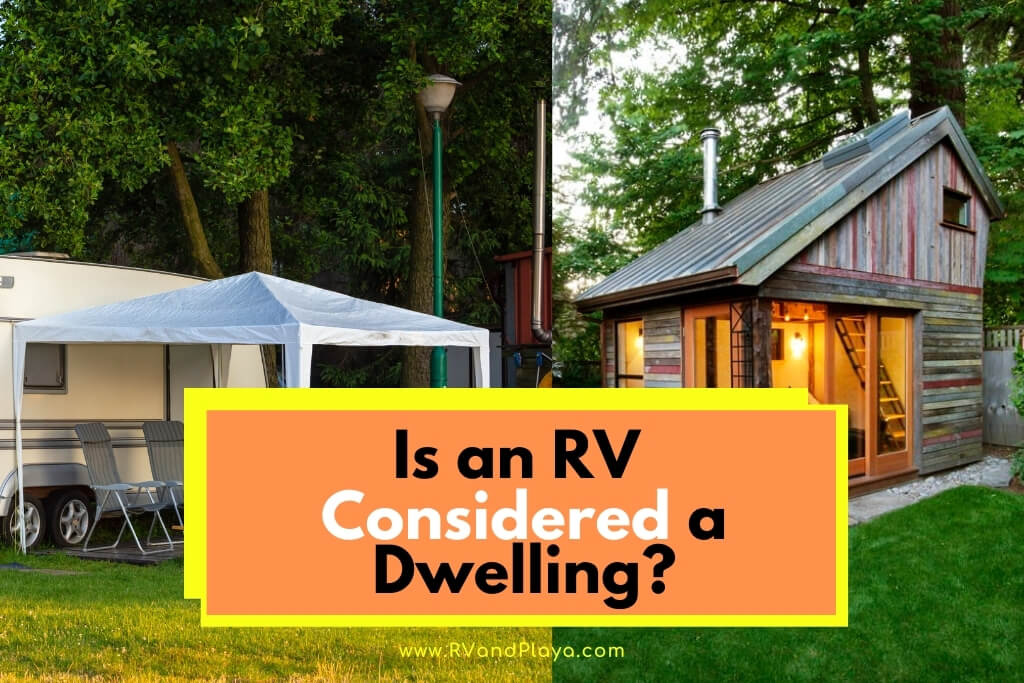If you’re looking into living the full-time RV life, you’re probably wondering about the laws and regulations involved and whether an RV can legally be a dwelling or permanent residence.
Unfortunately, the answer isn’t a clear cut one.
Is an RV considered a dwelling? No, an RV is not considered a permanent dwelling in most areas of the United States. However, the regulations that define a “dwelling” vary from state to state and even town to town.
The US Federal Government does allow you to claim an RV as a primary or secondary residence for tax purposes.
Still wondering what you might find when you call up your local government and find out what restrictions are in place?
In this article, we’ll go over what you can expect when you call your local government about the rules concerning RV living, why an RV isn’t considered a dwelling, why you might consider your RV a primary residence on your taxes, and whether and RV can be an ADU.
Table of Contents
What is Considered a Dwelling?
The common definition of a dwelling is simply a structure that people live in, but what your local government means by dwelling can be far more specific and limiting.
Often local governments do not consider an RV to be a dwelling, or at least not a permanent one.

Here are some of the regulations you could expect from local governments:
1.Length of time
An RV might only be considered a dwelling for a short period of time, like 90 or 180 days out of the year.
2. Utilities
Usually, in order to be considered a dwelling even for a short period of time, an RV must also have access to water and an approved dumping station.
3. Zoning regulations
Local regulations may limit the areas of a town that an RV can be inhabited.
An RV may be considered a dwelling (permanently or temporarily) if it is parked in an RV park with the proper zoning.
4. Temporary situation
Some areas allow RVs to be dwellings if you’re in the process of building a home for up to a certain amount of time.
5. Workplace solution
RVs can sometimes be used as dwellings for temporary employees in certain industries.
6. Occupation limits
Some places have regulations about the number of people that may use an RV as a dwelling.
For example, they may only allow 1-2 people per bed or per a certain amount of square footage.
But what can you do if you can’t live out of your RV in the area where you live now? Most people who live in RVs full time move around quite a bit.
In fact, many RV parks have restrictions on the length of time you can stay in them, and this often complies with the local laws.
So plan to move between parks or RV-friendly parking lots and see the sights that your country has to offer!
Why isn’t an RV a Dwelling?
I know it seems ludicrous that you couldn’t own a piece of land and put an RV on it as long as you were willing to follow dumping regulations, but that is the case in most parts of the United States.
There is no universal, formal reason for these laws, but many believe one excuse you might hear is that RVs are designed for recreational and short-term use only.

Because of that, they do not need to comply with regulations that mobile homes or permanent dwellings must comply with. In short, it is believed that living in an RV full time may be unsafe.
Many of us who have lived in an RV longterm understand that there is nothing unsafe about the full-time RV life.
Many suspect there are other reasons behind these laws that go beyond safety.
For example, some believe that the government wants to encourage and prioritize land ownership and permanent residences.
No matter the reason, the law is what it is, and we have to do our best to work within it.
Related reading: Is it Illegal to Live in an RV in California? (RV Law in CA)
Can an RV be a Primary Residence for Tax Purposes?
While state and local governments can be restrictive about what is considered a dwelling, the United States Federal Government is a little more forgiving when it comes to taxes.
According to Turbo Tax, RVs and even boats can be considered either a primary or secondary residence as long as you are able to sleep, cook, and use the bathroom inside of it.
This is true even if you’re frequently on the move. You don’t need to permanently live in a single location.
This can be helpful because, in some cases, you’ll be able to take advantage of homeowner’s tax deductions and save some money.
You should always talk to a tax professional about what deductions you can claim.
Related: Setting Up a Travel Trailer to Live In: 20 Essential Steps
Can an RV be an Accessory Dwelling Unit?
Once again, there is no federal law in place that allows an RV to be an accessory dwelling unit (ADU), but many local governments have regulations about it.
Always check with your local government about the specifics of these regulations.
But first, what is an ADU?
An ADU is an apartment or separate building that shares the same property as a primary residence.
So a basement apartment can be an ADU as can a guest house. An ADU is usually hooked into the same water and electricity sources.
Here are some of the ways that local governments deal with RVs as ADUs:
- Some governments allow RVs as ADUs as long as they are not rented out for extended periods of time.
- Some governments do not allow RVs as ADUs.
- Some governments are okay with an RV ADU if the RV’s tanks are dumped at an approved dumping station.
In some areas, you have to register the structure as an ADU to be able to use it as such. Unfortunately, the only way to know for sure is to check with your local government.
This can be helpful if you want to live in your RV full-time on a friend or relative’s property.
Related: Can You Live in an RV Park? Here’s Exactly What To Expect
Can You Sleep in Your RV on Your Property?
Most local governments allow you to park an RV on your property, but even this can vary, especially if you live in a location with an HOA.
But sleeping in it is another story.
Related: Can You Live in a Motorhome on Your Property? Here Are The Facts
Most of the time, you would be breaking the law if you slept in your RV in your own backyard.
It sounds ridiculous, but, more often than not, it’s true. Before sleeping in your RV on any property not designated for RV use, you should check with local laws.
Does Homeowner’s Insurance Cover an RV that is a Dwelling?
Insurance companies do not consider an RV a dwelling in the same way that they consider a house a dwelling.
That being said, if your RV is parked outside your home, it might be covered by your homeowner’s insurance in the event of a problem.
The contents inside the RV may also be covered. Some insurances don’t cover RVs, however, so it is always worth the phone call.
If you intend to live in your RV full time, you’re going to need RV insurance, not homeowner’s insurance.
Some companies offer full-time RV insurance meant to meet the needs of full-time RVers.
Related reading: The 4 Best RV Insurance for Full-Timers: A Dollar-Saving Guide
Conclusion
Some places are more RV-friendly than others. There are RV parks in some states where you can stay for the whole year and live in your RV without being on the wrong side of the law.
But where’s the fun in that? The beauty of living in an RV is that you can explore the world.
As long as your following the local laws, you can live full-time in your RV without breaking the law. So yes, in that sense, an RV can be a dwelling.
Reference:
Recent Posts
Is Toyota Remote Connect Free? (Subscription, Services Plans)
Does Toyota Remote Connect have an included trial? It used to be the case that, when you bought a new car, you made one straightforward payment and that was it. Now, it feels like there are...
Toyota Safety Connect: What It Is And Why You Need It? Whether you’re buying a new Toyota or you’ve had one for a while you will have been given the hard sell on their Connected Services but do...

